With buzzwords like collagen bone broth, collagen coffees and collagen smoothies, this supplement has quickly become the ‘IT Girl’ of the nutrition world. The Wall Street Journal reports that since last year, Innova Market Insights collagen product sales increased by a third to 60.9 million. That is a lot of powder.
Collagen has become a buzzword since it was suggested that this structural protein, which is found in humans and animals, is not unlike a glue that holds us together. Collagen is high in amino acids, which are the building blocks used in the foundation of healthy joints, skin, hair, and nails. As people age, they produce less collagen. That can cause the loss of elasticity in the skin as well as other issues like joint pain. Most of the craze has been those who flock to the supplement for its promise of anti-aging properties, not unlike a sandy fountain of youth.
Skin Health
According to E! News, celebrity Jennifer Aniston is a major proponent of collagen and the miracles it can work on the skin and wrinkles. She told the website Well + Good that a collagen supplement addition to her daily shakes helped her skin to “glow”. Aniston is also the spokeswoman for a brand of water that claims to be smarter than others.
Fresh, dewy, skin isn’t the only claim made as a benefit of scooping some collagen into your daily smoothie. Some further claims include it that improves sleep, enhances digestion, heals leaky gut syndrome, helps with rheumatoid arthritis, increases metabolism, and creates world peace.
Is the research there?
International politics aside, if something sounds too good to be true, it might be. Bonnie Liebman, a nutrition director for the Center for Science in the Public Interest, points out that marketing can be deceiving. As she told the Wall Street Journal, buzzwords like “enhances, “maintains”, or “promotes” are more descriptive adjectives than actual scientific claims and should not be taken as gospel.
Liebman is not the only one who believes the science may be faulty. “The research is not there,” says Mark Moyad, a director of complementary and alternative medicine at the University of Michigan Medical Center. Moyad alleges to have reviewed over 50 studies on the effectiveness of collagen, from physical movement to cosmetic appearance. His claim is that most of the studies have sample sizes of fewer than 25 individuals. In some cases, he is correct.
According to Greatist, a German and Brazilian study found that a group that took collagen supplements for 24 weeks decreased nail breakage by 42% and increased their nail growth by 12%. However, when probed further, details reveal that the study was only with 25 individuals and there was no control group. This, Moyed claims, makes for pretty shaky results and findings. Although Moyed told Time magazine that some preliminary trials do show potential benefits for supplementing your diet with collagen, the small control groups in the studies mean the claims cannot yet be substantiated.
Other studies, with larger test groups, may not specifically point out the benefits of collagen alone. According to Health, some studies have shown that people found improvements in their skin and fitness related joint pain after using the wonder powder. A Penn State University study in which participants ingested 10 grams of collagen for 24 weeks, found an improvement in pain while at rest, and while working out. However, detractors claim the proof may not be in the vanilla coconut collagen pudding. They believe it is impossible to prove if this is actually from the collagen or if the results could have possibly been achieved by using a whey protein powder instead.
Ketogenic Diet
Mark Sisson, fitness author, athlete, and CEO of Primal Kitchen has been at the forefront of the paleo and keto diet regimens. Sisson claims that collagen is an important addition to the diet in order for the body to make more glycine. His company produces a line of collagen powders and snack bars, which mostly appeal to women in his customer base who want to improve their skin and hair. Despite this, he insists it’s not just a lady thing - he has plenty of male customers who take the supplement for joint improvement. Despite Sisson’s claim that collagen supplementation will result in an improvement in skin texture, wound healing, and joint health admitted to the Wall Street Journal that “dietary science is never black and white.”
Verdict?
Can ingesting collagen harm you? Not likely, according to George Washington University dermatology professor Adam Friedman. He told the Wall Street Journal that the body will break down the collagen just as it does other proteins. Moyad, however, worries that there could be heavy metal toxins trapped in the animal bones used as a source for the collagen powders. This isn’t closely regulated since collagen, like many supplements, isn’t approved by the FDA.
So far, the scientific studies that show improvements seem to need more research or further development. Until then, the best way to get your amino acids, as with all nutrients, is through food. And before you lay down some ducats for a possibly overpriced container of protein powder, Moyed suggests that instead of relying on collagen, first try eliminating the bad habits that damage skin and joint health, like smoking, and excess sugar or sun. As he told Time magazine “If you are taking supplements but not making lifestyle changes, that’s kind of like putting premium gas in your car but not changing the engine oil or doing anything else to maintain it.” So next time you plan on taking a powder, know the vote is still out.


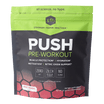
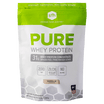
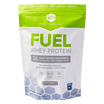
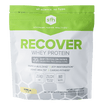
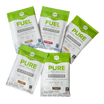
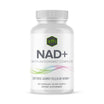
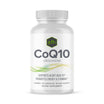


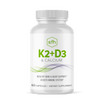
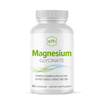
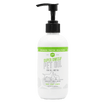







Leave a comment
This site is protected by hCaptcha and the hCaptcha Privacy Policy and Terms of Service apply.